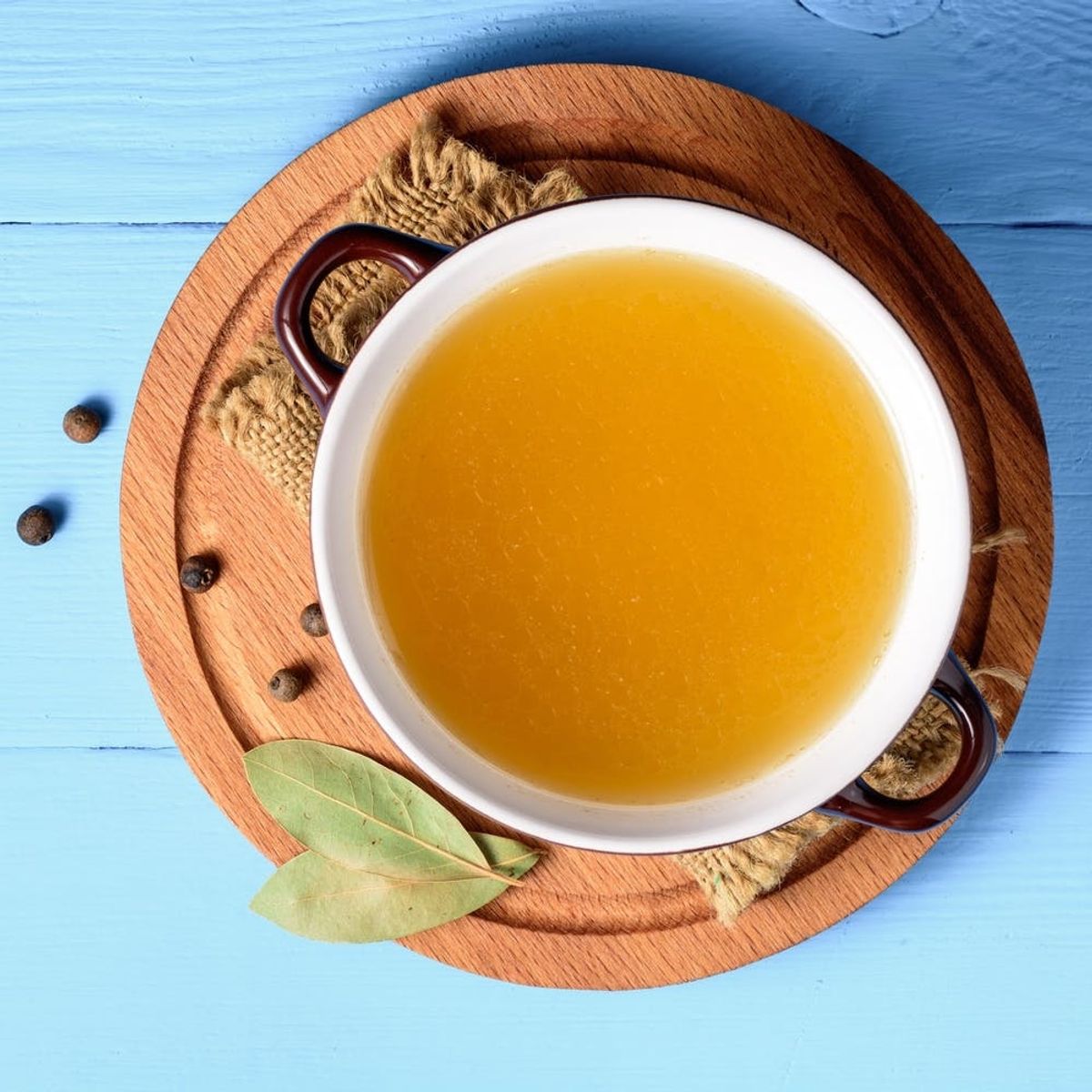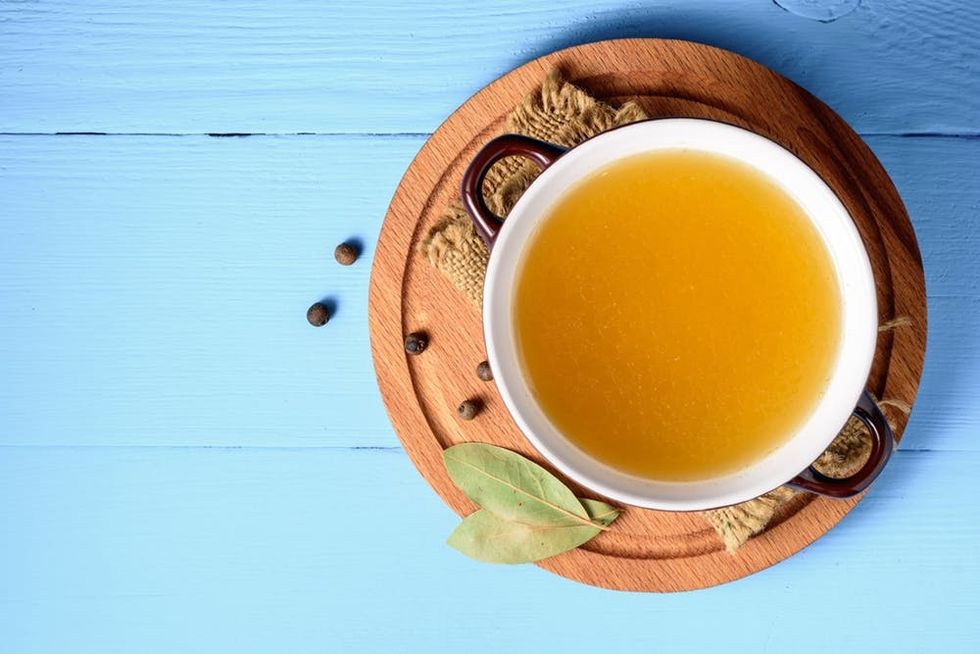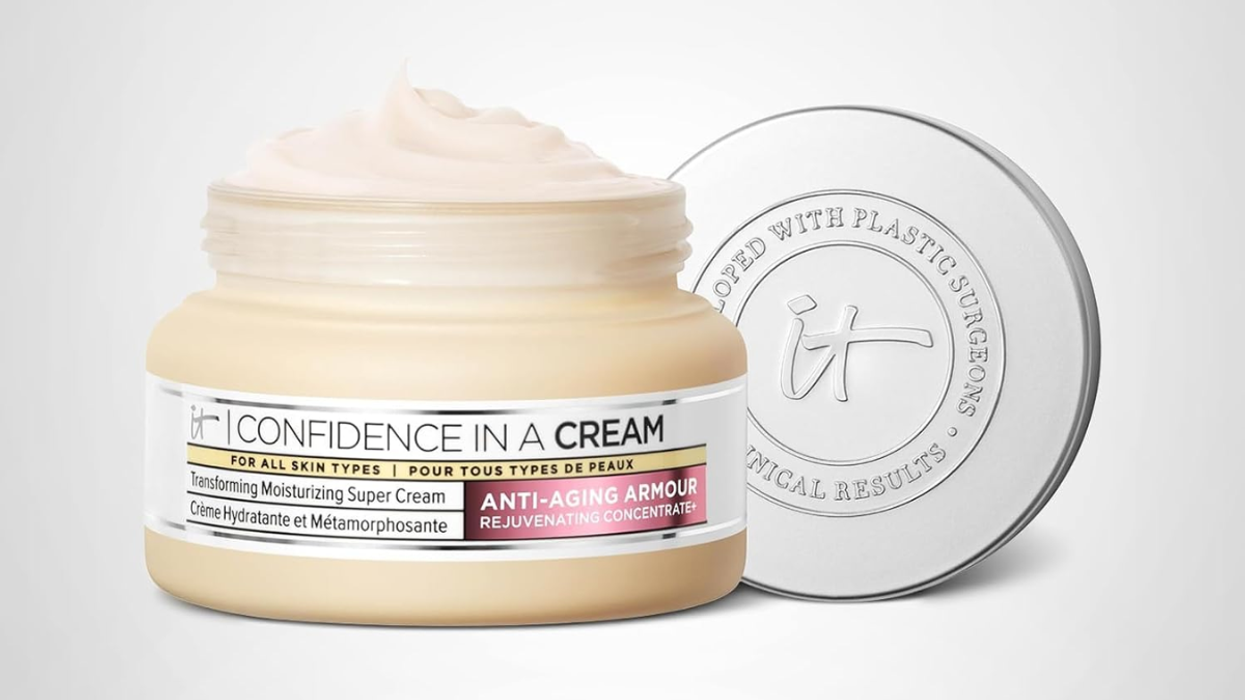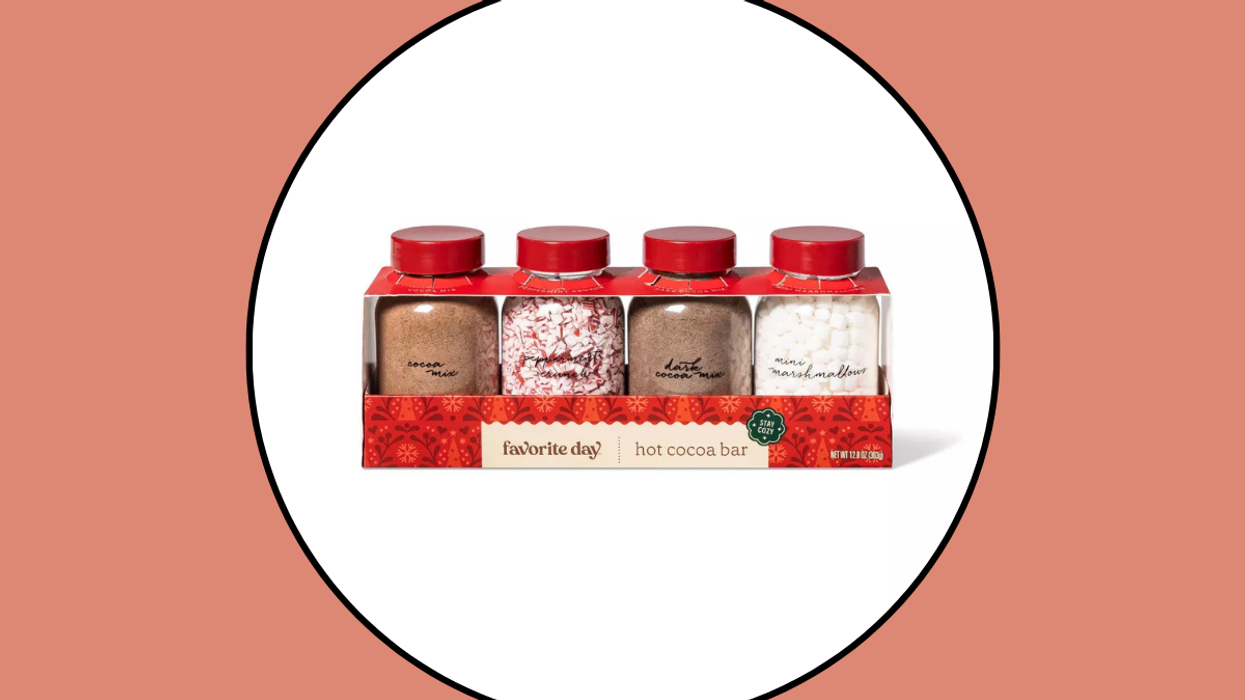Benefits beyond great skin.
Why Collagen Is the Buzziest Health Supplement Right Now

Lesley Chen is a California native who writes about travel, health/fitness, and other lifestyle topics. She has a serious case of RBF and exercises mainly to balance out an aggressive candy addiction.
When you hear the word “collagen,” it’s likely that you think of plump lips a la Real Housewives or an anti-aging ingredient in every skincare product you’ve recently bought or heard of. But beyond beauty, collagen has a number of health benefits, making it one of the buzziest ingredients in the wellness world right now. It’s also made it to the celebrity insider circle: A few fans include Jennifer Aniston, who puts it in her smoothies; Busy Phillips, who adds it to her Bulletproof coffee; and Kourtney Kardashian, who consumes collagen powder first thing in the morning. We chatted with Dr. Josh Axe — a doctor of natural medicine, doctor of chiropractic, and clinical nutritionist — to get the lowdown on the protein everyone is talking about.

What Is Collagen, and Why Should We Care About It?
Collagen is a protein that’s naturally found in our bodies — it’s in our muscles, bones, skin, blood vessels, digestive system, and tendons. Dr. Axe compares it to the “glue” that helps hold the body together. As we get older, collagen slows down and our bodies produce less and less of it, which leads to the typical signs of aging: wrinkles, sagging skin, and joint pain. As collagen decreases, our tendons and ligaments don’t move as easily, which also impacts movement and joints. Dr. Axe points to a recent study that found that collagen is an effective treatment for osteoarthritis (a degenerative joint disease) and also notes that “slowing down collagen degradation is one key to getting ahead of the aging process.”
So while collagen itself is not new, its time in the spotlight has recently increased. “Collagen is hot now because it has so many health benefits — from beauty to gut health, it’s promising to be effective,” says Dr. Axe. “Plus, it’s naturally found in our bodies. As we understand the decrease in collagen as we age and the benefits we can reap by supplementing our diets with it, collagen is a perfect addition to the natural beauty and wellness world. Plus, convenience is so important, and collagen is now available in many forms that people can quickly use with ease.”
Different Types of Collagen
We know collagen is already found in our bodies, but there are actually at least 29 identified different types of it. A majority of the collagen, approximately 80-90 percent, is comprised of Type I, II, and III. Here are some of the most common types.
- Type I: Made of eosinophilic fibers that forms tendons, ligaments, organs, and skin. It helps with wound healing, skin elasticity, and holding body tissue together.
- Type II: Benefits chondrocytes, small cells found in the cartilage of joints. Type II helps reduce joint swelling and keeps them well cushioned and lubricated. (Type II is important for patients who have rheumatoid arthritis and other joint disorders.)
- Type III: Made of reticular fibers that are a major component in the cellular makeup of organs and skin (i.e., it helps keep skin elastic). It also helps form blood vessels and tissues within the heart.
- Type V: Plays a big role in the reproductive organs of people who can get pregnant, as it is used to make the surface of cells, hair strands, and tissue found in the placenta.
- Type X: Helps form interstitial fibers with Type I and is present in normal joint cartilage. It’s also generally associated with the growth of long bones in mammals.
Sources of Collagen

Since collagen naturally decreases with age, one way to counteract its depletion is to add some back into your diet. Dr. Axe says some of the best sources include real bone broth (made with animal bones, skin, connective tissue, and organ meats) or collagen powder supplements (look for versions that are sourced from healthy animals, such as grass-fed cows or pasture-raised chickens). There are also plant-based collagen products available.
Dr. Axe advises that it’s usually best to try to get nutrients from real food sources when possible — bone broth, for example, can provide additional nutrients and minerals beyond collagen. But collagen supplements can provide a convenient option for busy schedules, and supplements can provide multiple types of collagen, along with collagen cofactors such as chondroitin and glucosamine (both of which help with cartilage and joints). The reality is that not everyone has the time or energy to make bone broth from scratch, but they can probably spare a few minutes to add a scoop or two of collagen powder, such as a multi collagen protein, to a daily coffee or smoothie. Collagen supplements also tend to be free of side effects, as they don’t contain common allergens such as dairy/whey, soy, nuts, seeds, or gluten. “Drinking protein powder made from bone broth or using it in recipes helps increase the body’s absorption of the collagen you consume — paired, of course, with a wholesome diet,” recommends Dr. Axe.
While you can take collagen any time of the day (breakfast smoothies, lunch/dinner soups, or bone broth afternoon snacks if that’s your thing), Dr. Axe says it’s especially beneficial after exercise, since it helps with recovery, tissue repair, and muscle health. He recommends having one collagen serving daily and advises that spacing out intake throughout the day can reap the most results.
Have you taken collagen before? Let us know your thoughts @BritandCo.
Brit + Co may at times use affiliate links to promote products sold by others, but always offers genuine editorial recommendations.
(Photos via Getty)



















